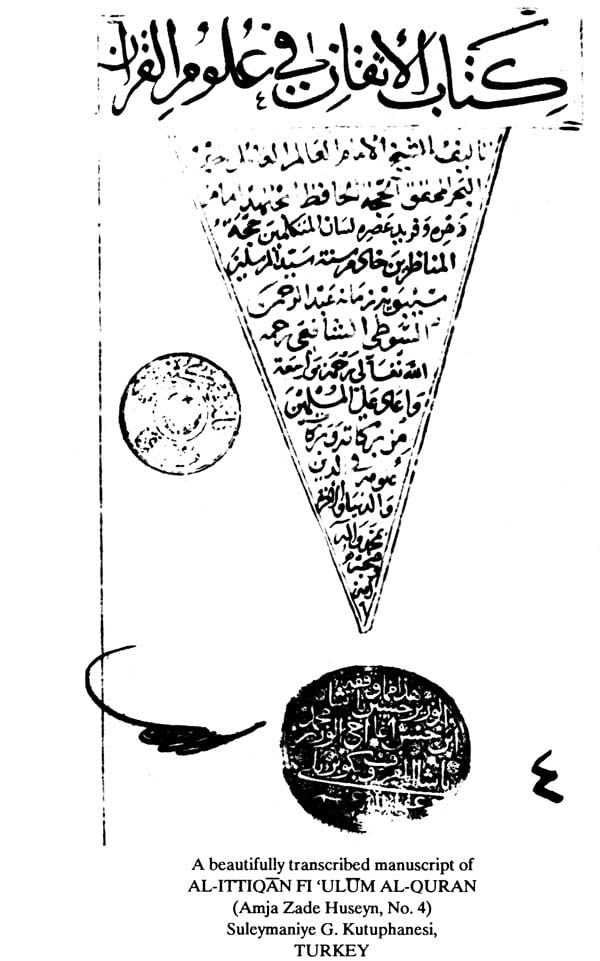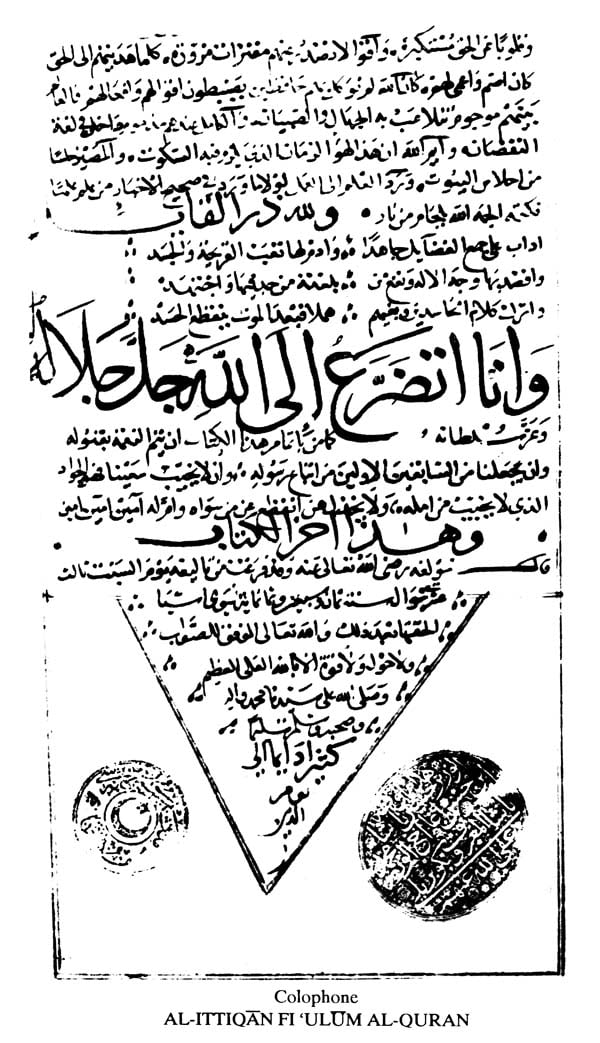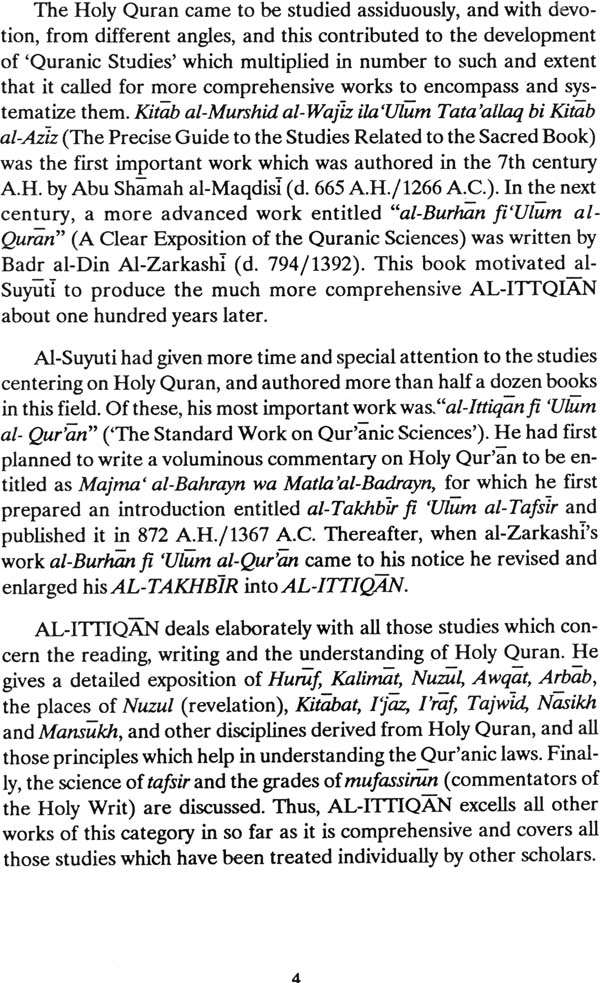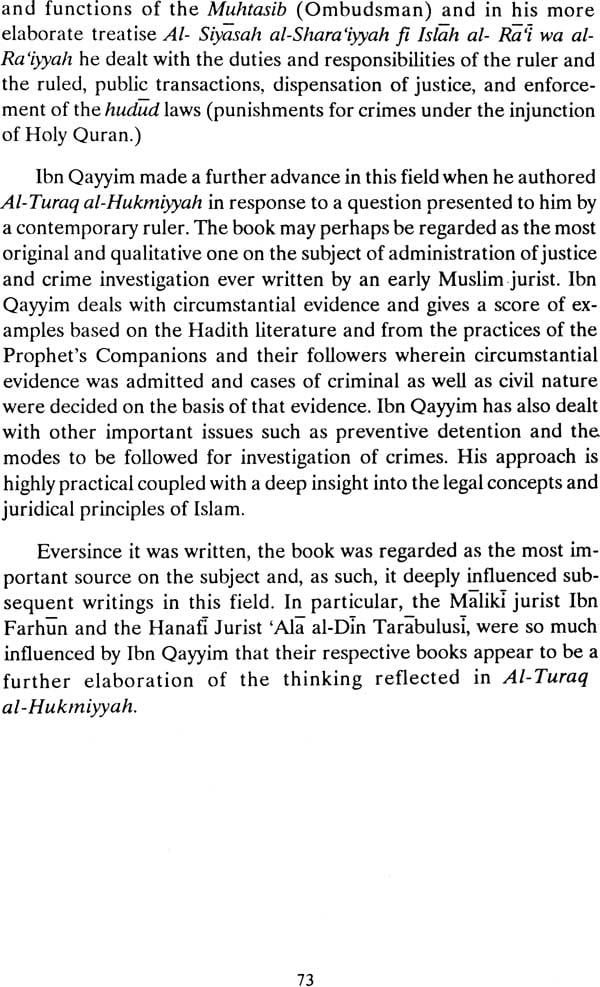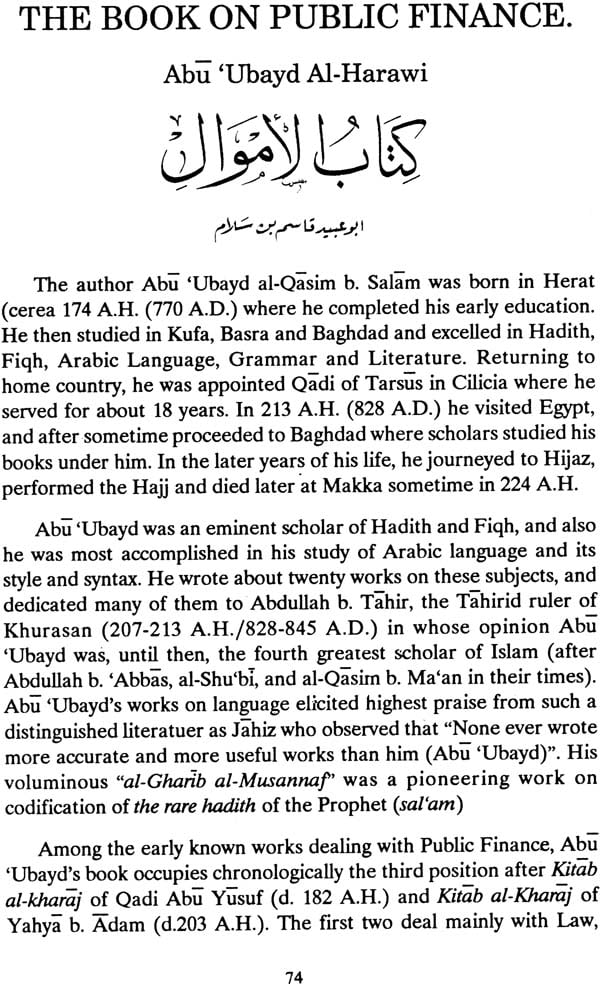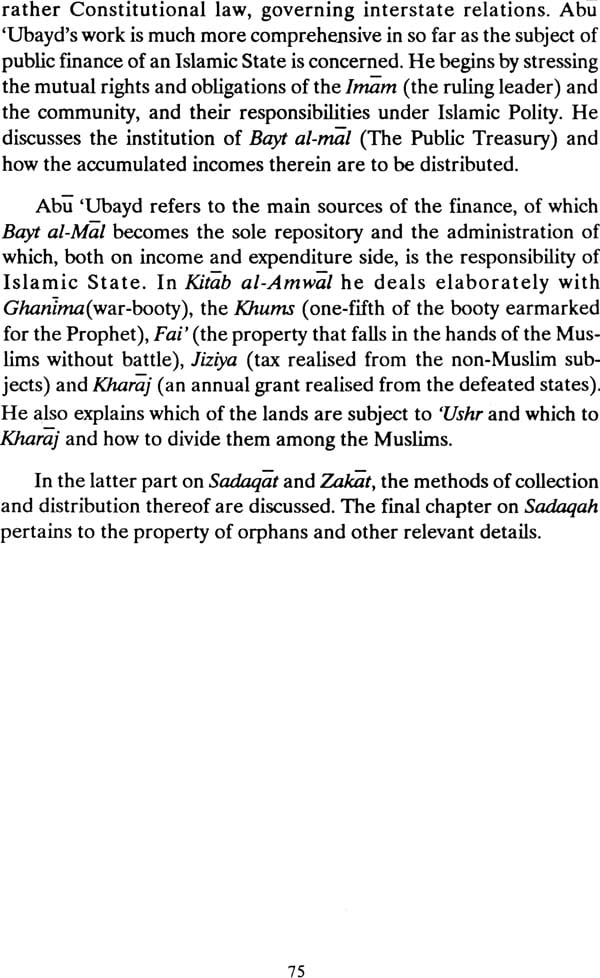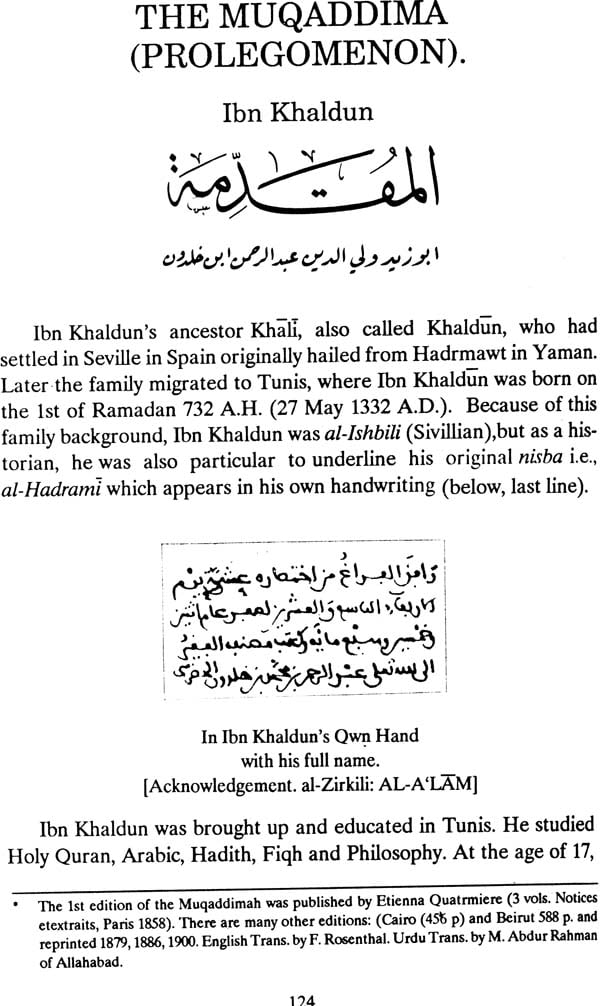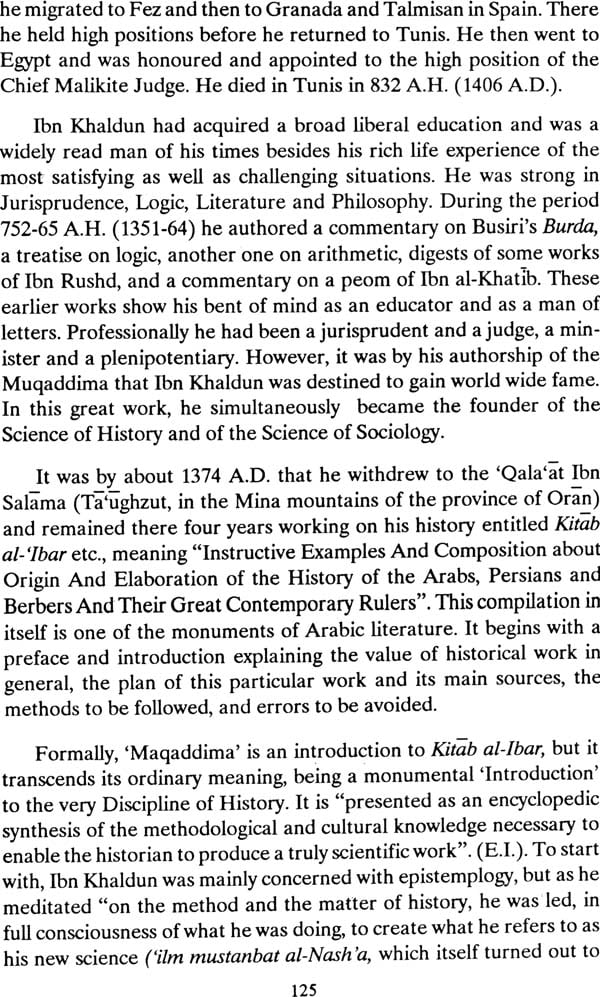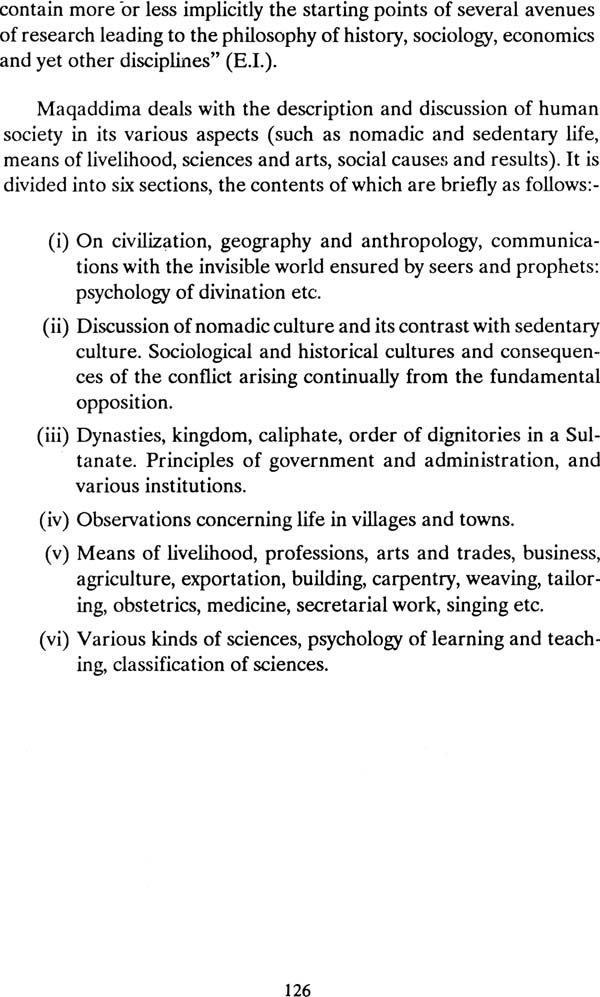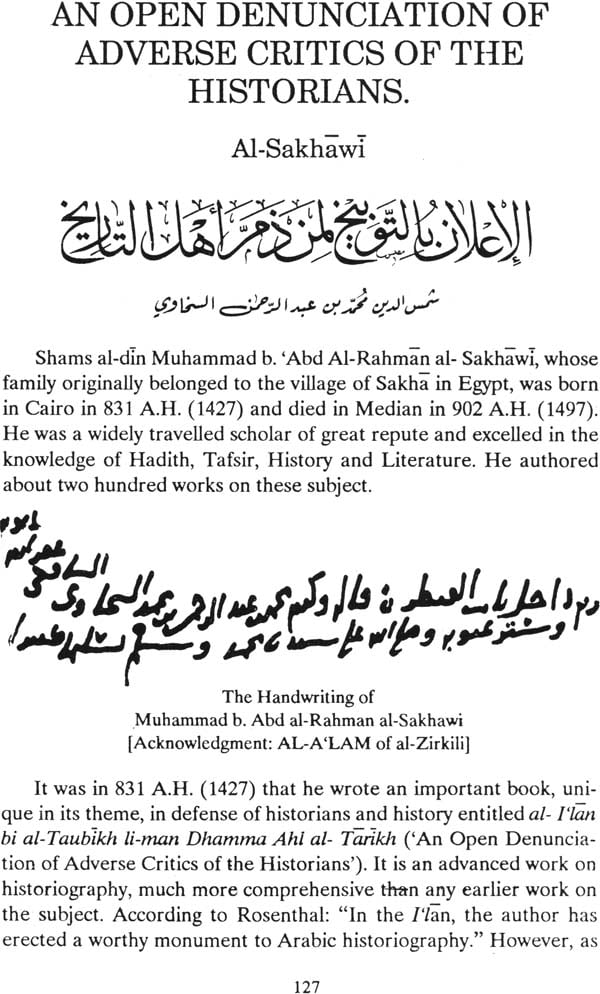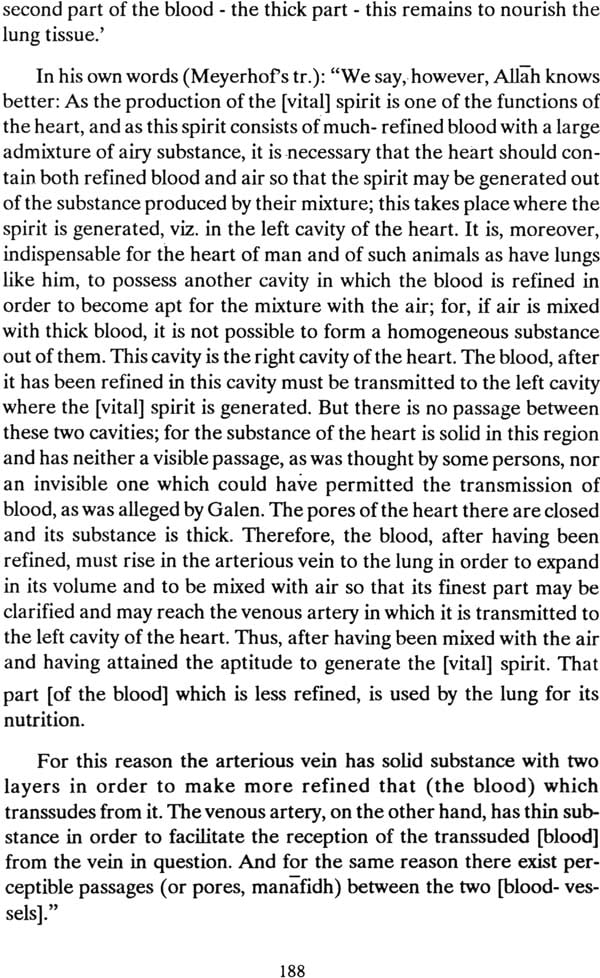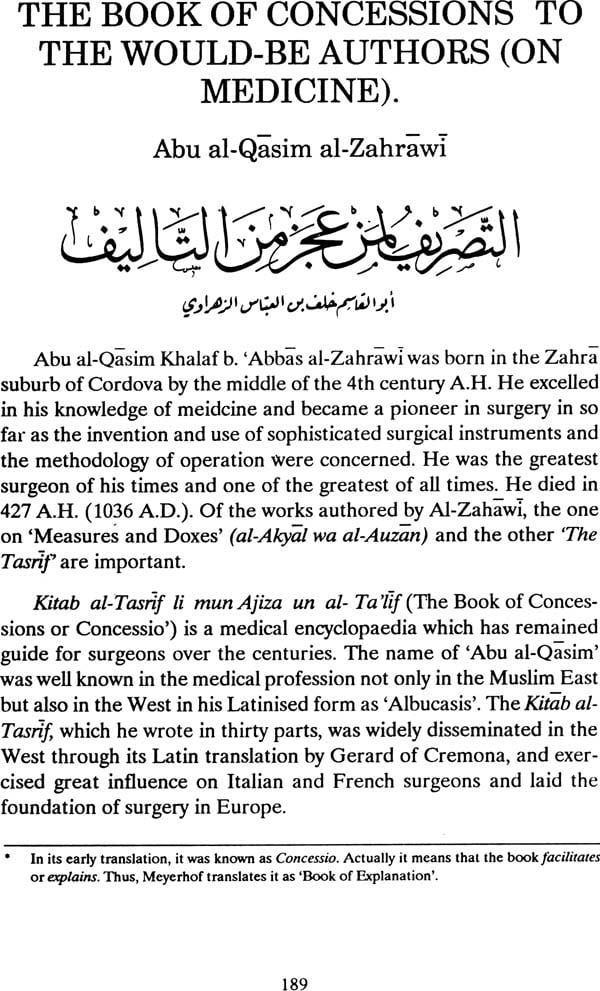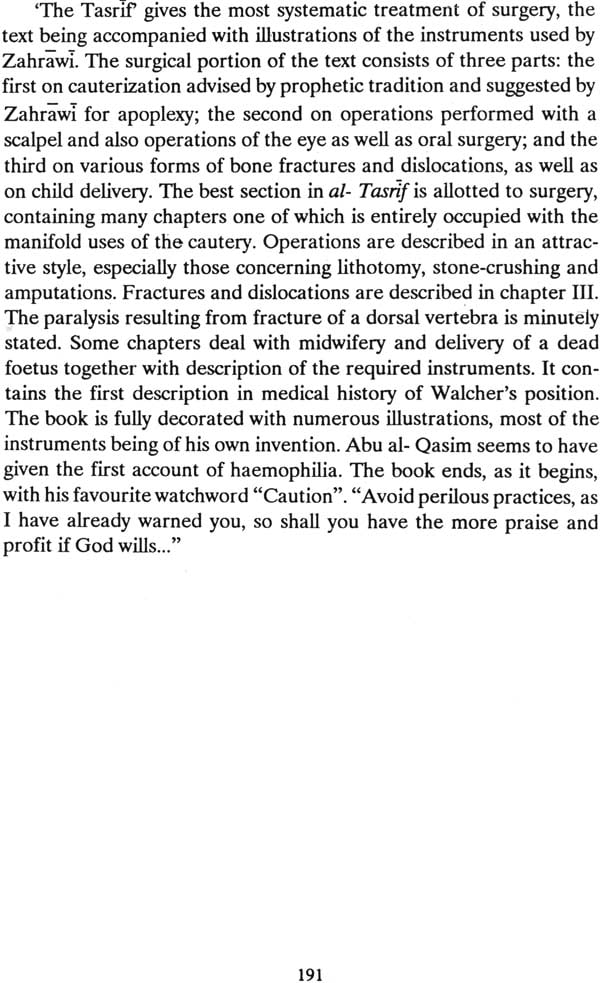
Great Books of Islamic Civilization
Book Specification
| Item Code: | NAL647 |
| Author: | N.A. Baloch |
| Publisher: | KITAB BHAVAN |
| Language: | English |
| Edition: | 2006 |
| ISBN: | 9788171512362 |
| Pages: | 238 |
| Cover: | Hardcover |
| Other Details | 9.5 inch x 6.0 inch |
| Weight | 520 gm |
Book Description
This book is an introductory list of those eminent books that had been written hundreds of years ago. The author has taken pains in collecting such books and classified under eleven different faculties. It is neither research oriented nor planned as a text-book to a comma and a colon. The main objective is to introduce the author and the book as briefly as possible. For this purpose relevant information has been brought together and compiled in a simple readable form. As far as possible, information has been drawn from the original texts or their translated editions, and also from secondary sources and reference works. We can see Islamic civilization, culture and thought in these books and can evaluate their achievements through comparing with modern civilization.
In the history of world civilizations, Islamic civilization has been essentially a faith-cum-knowledge based civilization. The quranic revelation simultaneously strengthened the foundations of faith and knowledge. The genesis of search for knowledge and achievement of excellence, the distinctive characteristics of the early Islamic society, may be explained briefly.
History of the Islamic peoples (the ummah), and of Islamic education, started with the quranic imperative ‘Read’! which made learning compulsory. The quran in itself became an inexhaustible source of knowledge, and also the revelation established the undisputed superiority of knowledge and strongly motivated the believer to seek more and more of knowledge. Consequently, the prophet (sal’am) declared that learning was compulsory for every ‘believer’ (muslim), man and woman, and that knowledge was to be sought for even though it be in china- i.s. wherever it was available, through any language, any teacher and in any country. There was a further elaboration that knowledge for mankind must multiply with the instrument of writing-the tip of the pen, and that mankind had beendestined to know the unknown. Human beings were called upon to see , to observe , to ponder, to think, to reflect , to understand and to learn. In effect, ISLAM became a way of living and learning, QURAN the book, and PROPHET the teacher. Primacy of knowledge was affirmed and the concept of compulsory learning and education was confirmed.
As the early Islamic community took to education, ‘childhood Education’ (Ta’lim al-aftal) came to be viewed by the muslim educator as the fundamental and foundational stage of education. As a result, the first organized educational institution- the universal primary school-was born. The kuttab (primary school) was held under any roof that was then available- such as mosques, houses of teachers and of learned men, palaces, bookshops, literacy salons, tents and open air in the desert. In the eastern world of Islam this elementary school became known as Maktab and in the fareast (Malaysia-indonesia) as pondok. With further development of formal system of education, madrasahs were established as the more distinct higher educational institutions outside the mosques in the 5th century A.H.
From believers’dedicated effort to understand the meaning of Quran, emerged the different ‘Quranic Studies’ (Ulum al-Quran) which is the subject of suyuti’s work . The ‘quranic studies’ , in turn paved the way for emergencies of other studies which eventually developed in to independent sciences . Hadith and sunnah were complimentary to the comprehension of the divine revelation and therefore, Hadith was studied intensively. This study developed in to an independent science, and Ibn salah’s work is an introduction to the ‘science of hadith’. Efforts at integrating faith and knowledge, the spiritual and the rational attitudes in belief and behavior , culminated In Al-ghazali’s expositions in his different works, mainly Ihya’ ‘Ulum al-din and Kimya-I sa’ adat.
The quranic revelation had motivated mankind to read, to observe, to think and rethink, to search and research, and to seek more and more of knowledge to be able to grasp the reality not only of the creator’s existence but his presence permeating the whole universe, both the world of humans and the world of nature. The more gifted among the believers responded to the Quran’s call more seriously: they began to observe, think and reflect in order to understand and learn more and more about god’s creation. Their researches extended the frontiers of knowledge at a rate not known before in history, and led to the development of different studies and sciences.
As ‘knowledge’ was to be sought for from all possible sources, the muslims researches spared no pains to seek knowledge through translation from greek, Indian, Iranian and possibly Chinese sources. By the first quarter of the 2nd Hirja century, the muslim scholar had gained acquaintance with the literary traditions of the non-muslim peoples.
With the Qur’anic emphasis on importance of knowledge, and the prophet’s motivation to muslims to acquire knowledge, persuit of knowledge became a living ideal with the early Islamic Community. It gained momentum in the first century of the Hirja, and led to considerable expansion of knowledge during the 2nd and 3rd centuries Beginning from the fourth century and continuing on for the next few centuries, there was an explosion of knowledge the first one in human history. This necessitated comprehension of the ever growing orbit of knowledge.
| Introduction | Page |
| Religion And Ethnic | |
| Sources of knowledge and guidance | |
| The standard work on Quranic studies, by Al-suyuti | 1 |
| The miracle of the Quran, by Al-Baqillani | 5 |
| Codification and sceintific Evaluation | |
| Introduction to the science of Hadith, By Ibn Al-salah | |
| The Sufis Path | |
| Book of flashes, by Al-sarraj | 12 |
| Alchemy of happiness, Al-ghazzali | 14 |
| Ethic | |
| Refinement of conduct, by Ibn Miskwayh | 17 |
| Comparative Religion | |
| The religious sects and schools, by Al-shahrastani | 19 |
| Education and Pursuit of knowledge | |
| Education as guidanance of the young | |
| Treatise on matters concerning learners and guidelines for teachers, by Al-Qabisi | 23 |
| Theory and practice of education | |
| Instruction of the learner and method of learning, by Al-zarnuji | 26 |
| The discource of the listener and the speaker, by Ibn jama'ah | 28 |
| Superiority of Knowledge | |
| Exposition of knowledge and its excellence, by Ibn 'Abd al-barr | 32 |
| Subject-wise comparative catalogue | |
| The catalogue, by Al-Nadim | 35 |
| Classification of knowledge, science and curricular studies | |
| The key of happiness and the light of leadership, by Tashkopruzade | 39 |
| Philosophical Thought | |
| Peripatetic Philosophy | |
| On first philosophy, by Al-kindi | 42 |
| Rationalization Favouring Greek Pholosophy | |
| The track of synthesis, by ikhwan al-safa | 44 |
| Ibn sina's Philosophy | |
| Book of observation and admonitions, by ibn sina | 47 |
| Physchology | |
| Book of soul, by ibn Tufayl | 50 |
| Ibn Tufayl's Philosophy | |
| The alive son of the Awake, by Ibn Tufayl | 53 |
| The ideas of classical and later philosophers , by fakhr al-din al- razi | 55 |
| Philosophy of religion | |
| The conclusive divine proof.., by Waliyyullah Al- Dihlivi | 57 |
| Philosophy of Illumination | |
| Philosophy of illumination, by Al-suhrawardi | 61 |
| Transcendent Theosophy | |
| The signs of Divine Grace, by mulla sadra | 64 |
| Political thought, governence and administration | |
| Political Theory | |
| The views of the citizens of the Ideal city, by Al-Farabi | 67 |
| Governance | |
| Methods of judgement in the Shari'ah laws, by Ibn qayyim al-jawziyyah | 71 |
| Public Finance | |
| The book of (public) finance, by Abu 'ubayd al-harawi | 74 |
| Administration | |
| Book of Ministers and secretaries, by Al-jahshayari | 76 |
| Accountability | |
| Exposition of the principles of accountability, by Ibn al-ukhuwwah | 78 |
| Trade, Carvan Routes and postal service | |
| Book of routes and kingdoms, by Ibn khurdadhbih | 81 |
| Jurisprudence and law | |
| Law(Al-Fiqh) | |
| The beginning of the Advanced and the end of the average, by Ibn Rushd | 83 |
| Al-Hidayah in the expositio of Al-bidayah, by Al-marghinani | 85 |
| Principles of Jurisprudence | |
| Principles of Jurisprudence, by Imam Shafii | 88 |
| Principles of Jurisprudence, by Al-Bazdawi | 90 |
| Legal Maxims | |
| Similars and Parallels, By Ibn nujaym | 93 |
| Legal Distinctons | |
| Rules of Difference between legal opinions and laws, by Al-qarafi | 96 |
| Legal distinctions (in the branches of hanafite law), by Al-karabisi | 98 |
| Legal Philosophy | |
| The Agreeable principles, by Al-shatibi | 100 |
| Constitutional Law | |
| The rules of Sovereignty in the governance, by Al-mawardi | 102 |
| International Law | |
| Book of International Law , by Al-shaybani | 104 |
| History | |
| Biography | |
| Al-sirah (biography of the holy prophet), by Ibn hisham | 107 |
| Annalistic Approach | |
| Kitab 'Al-Tarikh', By Khalifa ibn khayyat | 109 |
| Tropical Approach | |
| The conquest of Sind, tr. By Ali Kufi(tr) | 111 |
| The Dynastic Approach | |
| The nasirite dynasties by Mainhaj-j-siraj juzjani | 113 |
| Universal History | |
| Washings of Gold and mines of diamonds, by Al-Mas'udi | 118 |
| History of a perticular city | |
| History of Makkah, by Al-azraqi | 122 |
| Philosophy of history | |
| The Muqaddima, by Ibn Khaldun | 124 |
| Historiography | |
| An open denunciation of the Adverse critics of Historians, by Al-sakhawi | 127 |
| History | |
| Biography | |
| Al-sirah (biography of the Holy Prophet), by Ibn Hisham | 107 |
| Annalistic Approach | |
| Kitab 'Al-tarikh', Khalifa Ibn Khayyat | 109 |
| Tropical Approach | |
| The conquest of sind, tr. By Ali kufi(tr) | 111 |
| The dynastic Approach | |
| The nasirite dynaties, by Minhaj-j-siraj juzjani | 113 |
| Universal History | |
| Washings of gold and mines of diamonds, by Al-masudi | 118 |
| History of particular city | |
| History of makkah, by Al-azraqi | 122 |
| Philosophy of History | |
| The muqaddima , by Ibn khadun | 124 |
| Histography | |
| An open denunciation of the Adverse critics of Historians, by Al-sakhawi | 127 |
| Society And Culture | |
| Language | |
| The law of the language , by Ibn faris the Linguist | 129 |
| Classification Of Nations | |
| Introduction to the classes of nations, by Ibn sa'id | 131 |
| Study of a culture | |
| The indica, by Al-bayruni | 133 |
| Literary culture(Adab) | |
| The choicest chronicles, by Ibn Qutabya | 136 |
| Poetics | |
| The poetics, by Ibn al-mu'tazz | 139 |
| Music | |
| Book of musical modes, by Al-urmawi | 142 |
| Cosmology, Cosmography, Geography And Chronology | |
| Scientfic Cosmology | |
| Farthest perception in the comprehension of heavens, by qutb al-din shirazi | 145 |
| The selection of the age, by Al-dimashqi | 147 |
| Geography | |
| Book on shape of the earth, by Ibn hawkal | 149 |
| Travel | |
| The travel, by Ibn battuta | 152 |
| Temporal Dimention : Chronology | |
| The surviving monuments of the bygone times, by Al-bayruni | 157 |
| Natural sciences | |
| Botany | |
| The book of plants, by Abu Hanifa al-dinawari | 161 |
| Zoology | |
| Book on Animal Life, by Al-damiri | 163 |
| Physics | |
| The optics, by Ibn Al-haytham | 165 |
| Physics and Hydrostatics | |
| Book of the balance of wisdom, by Al-khazini | 168 |
| Chemistry | |
| Book of secrets, by Ab bakr al-razi | 171 |
| Mathematics Sciences | |
| Calculation/Arithmetic | |
| The key to calculation, by Al-kashi | 174 |
| Trigonometry | |
| Book of the Figure of the sector, by nasir al-din al-tusi | 176 |
| Algebra | |
| Book of algebra, by Al-khwarazmi | 178 |
| Mathematical Geometry | |
| The encompasser of premises and conclusions, by Al-marrakushi | 181 |
| Science and Art of Healing | |
| The principles | |
| Canon Medicinae, by Ibn sina | 183 |
| Anatomy, physiology | |
| Commentary on anatomy of the canon, by Ibn al-nafis | 186 |
| Surgery | |
| Book of concessions for the would-be-authors, by Al-zahrawi | 189 |
| Small pox and measles | |
| The treatise on smallpox and measles, by Al-razi | 192 |
| Ophthalmology | |
| The well arranged book on Ophthalmology, by Ibn al-nafis | 194 |
| The simples drugs and diets | |
| The comprehensivev in the simples of drugs and diets by Ibn al-baytar | 197 |
| Therapy and Diet | |
| Book of practical treatments and precautionery measures, by Ibn zuhr | 199 |
| Veterinary | |
| The perfect in baytara and zurtaqa, by Ibn al-baytar | 201 |
| Medical Profession | |
| The best of generations of physicians, by Ibn Abi Usaybi'a | 203 |
| Applied Science And Technology | |
| Agriculture | |
| Book of agriculture, by Ibn al-awwam | 205 |
| Agricultural Calender | |
| The seasonal periods and atmospherics, by Al-ajdabi | 207 |
| Underground Water Resources | |
| Raising of the subterranean waters, by Al-karaji | 209 |
| Machenics and Technology | |
| The book of ingeneous mechanical devices, by banu musa | 211 |
| Integration of Theory and practice in the application of mechanics, by Al-jazari | 214 |
| Knowledge of oceans and nevigation | |
| Book of instructions in principles and regulations , by Ibn majid | 217 |

